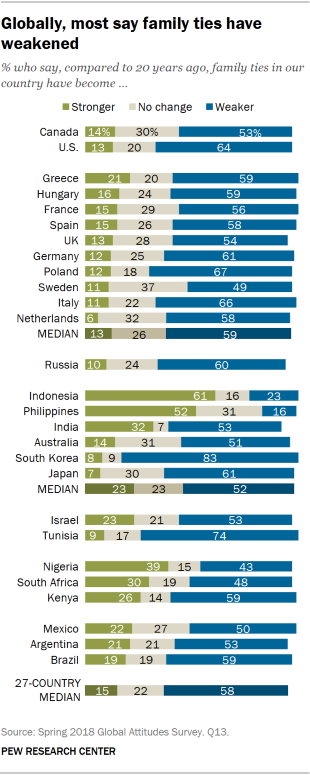
Across the 27 countries surveyed, almost six-in-ten (58%) believe family ties have gotten weaker over the past 20 years. This is true in virtually every country surveyed, including 64% in the U.S. and a median of 59% across 10 European countries.
The view that the strength of family is declining is also found in the Middle Eastern, sub-Saharan African and Latin American publics surveyed. For example, in Tunisia, 74% say family ties have gotten weaker. Almost six-in-ten Kenyan and Brazilian adults (59%) share the same view. Among the countries surveyed, those in South Korea are the most likely to say that family ties have weakened over the past two decades (83% say this).
The main exceptions to this global sentiment are in Indonesia and the Philippines. A majority of Indonesian adults (61%) say family ties have gotten stronger while 52% in the Philippines believe the same. About four-in-ten Nigerians also see family ties strengthening, though 43% say they are weakening.
When asked about whether the change in family ties was a good or bad thing for their countries, half or more in every country surveyed (except Indonesia and the Philippines) said this was a bad thing. And majorities in every country surveyed are in favor of strengthening family ties.




